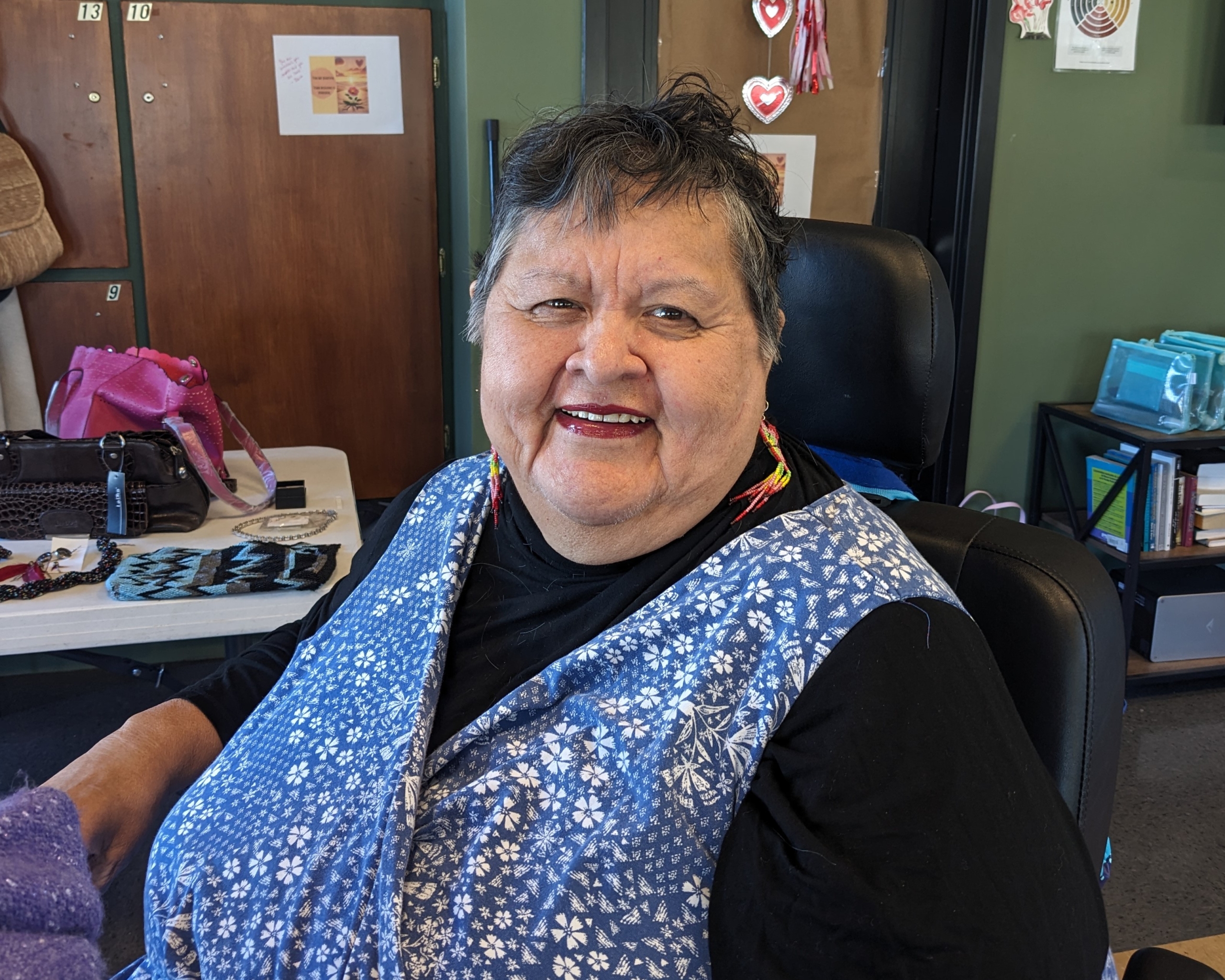Debra’s Story
“It’s a community that none of us has otherwise. It’s got heart. It gives me hope.”

Debra’s Story
The Our Place community centre on Pandora is so much more than a place to find a hot meal. Family Member, Debra Bell, knows this better than anyone.
“I come for the camaraderie,” says Debra. She can often be seen in the dining room at meal time, connecting over a hot lunch with other seniors.
Debra was born and raised in Alert Bay, and her family is Kwakwaka’wakw. Though she regrets that their language was lost, she remains deeply connected to her culture, expressing it through her beautiful traditional art. She fondly recalls growing up with her parents and grandparents in the small fishing village and witnessing how Alert Bay grew as other Indigenous communities lost access to teachers and medical professionals. By the time she was raised, the Potlatch ban had been lifted, but her grandparents and parents still carried the painful memories of systemic discrimination and trauma.
While she treasures memories of time spent outdoors and on the ocean, she also remembers the struggles in her community— alcoholism and, tragically, experiences of sexual assault in her early years. Yet, Debra chooses not to dwell on these hardships; instead, she speaks of them as part of her journey, emphasizing the strength and optimism they helped her build.
Her career began as an intake officer for the welfare office in Campbell River, later leading her to work with the ministry in Haida Gwaii. Over the years, she remained deeply connected to her community, serving in social services, childcare, libraries, and other support roles. In 1996, she earned her degree in social work, solidifying her lifelong dedication to helping others.
“I think that’s why I’m attracted to Our Place. They’re really good people,” she says.
Debra married and had two sons. Her husband struggled with heart disease from a young age, and at just three years old, her eldest son was diagnosed with a severe heart defect. He underwent three open-heart surgeries at BC Children’s Hospital, but during a family trip to Vancouver, he passed away at only 11 years old. Just five years later, Debra’s husband collapsed in downtown Victoria and died in her arms.
“I was a bird with a broken wing after that,” she says.

Debra remains deeply connected to her culture, expressing it through beautiful traditional art.
Today, Debra faces significant health challenges, relying on a wheelchair and oxygen. For a time, she depended on her younger son for care, but as it became too much for him to manage, she sought external support. Though grateful to have housing, she lives alone and struggles to access the medical and social services she needs. Cooking for herself is difficult—when she can afford groceries.
“When I get my pension, I pay my rent, my hydro, everything—there isn’t much left for food,” she explains.
The first time she was referred to Our Place was just for a meal to ease this strain.
“I had spaghetti, a nice meal. Then I realized, you could go there any time,” she says. “The volunteers, the staff, the people, they are all so nice to us.”
As time went on, Debra made friends and started exploring other programs offered by Our Place. She regularly spends time with the 55+ group and uses Our Place foot care services to maintain her foot health thanks to volunteer nurses. Recently, she attended Our Place’s Beauty Day.
“I just can’t get over that Beauty Day,” she says, smiling widely. She still sports the fresh haircut from the day and speaks fondly of the manicure and make-up. But, mostly she was happy to spend the time with her fellow women.
“I’m meeting so many elderly [people], especially women, who don’t have homes,” she says of her friends at Our Place. One of the fastest growing groups in need of support, many seniors experiencing poverty, homelessness, and isolation seek support at Our Place.
“It’s a community that none of us has otherwise. It’s got heart. It gives me hope.”